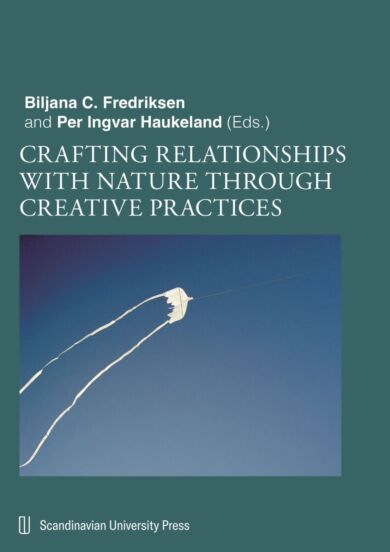Crafting relationships with nature through creative practices
Pocket
Engelsk
- Format: Pocket
- Antall sider: 220
- Språk: Engelsk
- Forlag/Utgiver: Aschehoug
- Nivå: Voksen
- EAN: 9788215069203
- Kom i salg: 8. des. 2023
- Utgivelsesår: 2023
- Tittel på originalspråk: Crafting relationships with nature through creative practices
- Bidragsyter: Fredriksen, Biljana C. (red) ; Haukeland, Per Ingvar (red)
- Utgave nr.: 1
- Emnekategori: Husflid, Kunst og kultur: generelle emner, kunsthåndverk og håndarbeid, Pedagogikk
529,-
This book is about crafting in a more-than-human world. The volume discusses performative and aesthetic forms of learning, arguing that learning, and the negotiation of meaning, is a multisensorial and multi-species processes. Many of the chapters are creative and artistic, and framed in a poetic language. The poems and images not only contribute to a pleasant reading experience, but they play essential roles in communicating how to craft relationships with nature through creative practices.The chapters explore the roles of nature, materiality, space, improvisation, playfulness, and artistic practices in research and teaching. They showa variety of co-crafting processes that emergethrough more-than-human dialogues.
The contributors of the book come from different research disciplines, from architecture, ecophilosophy, outdoor life studies, and craft education; to art, creative writing, poetry, and the performing arts. They all seek to overcome narrow anthropocentric approaches to the arts, arts education and education in general, and propose possible paths to a pedagogy of care and responsibility. They exemplify an eco(multi)centric approach to creative practicesand invite readers to participate in a future of becoming together in a the more-than-human world.
The contributors of the book come from different research disciplines, from architecture, ecophilosophy, outdoor life studies, and craft education; to art, creative writing, poetry, and the performing arts. They all seek to overcome narrow anthropocentric approaches to the arts, arts education and education in general, and propose possible paths to a pedagogy of care and responsibility. They exemplify an eco(multi)centric approach to creative practicesand invite readers to participate in a future of becoming together in a the more-than-human world.


